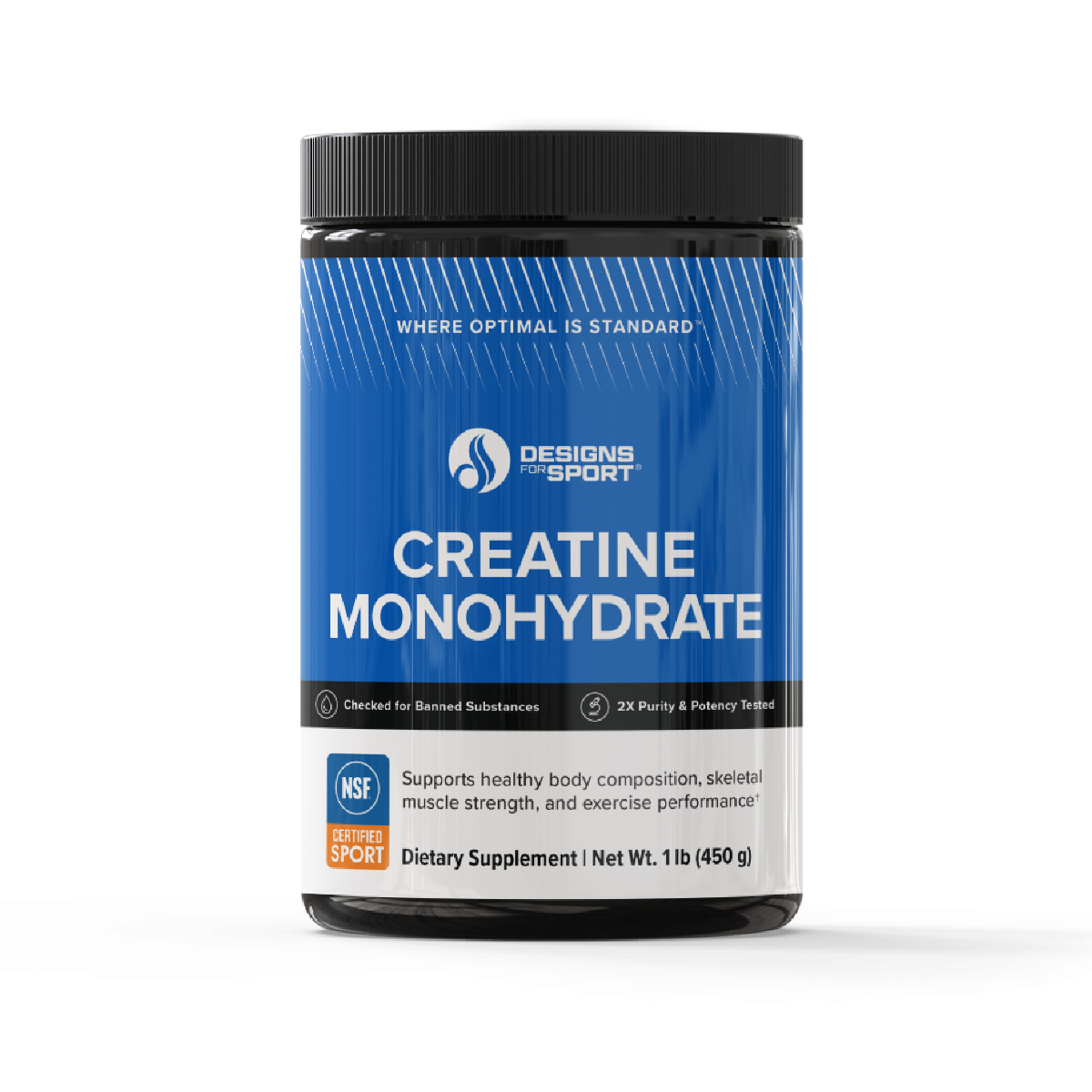When most people think of creatine, they picture athletes and gym-goers chasing performance gains. But this powerhouse supplement is gaining attention for its potential benefits far beyond the weight room, including during pregnancy.
Creatine is essential for cellular energy production, particularly in tissues with high energy demands like the brain, muscles, and placenta. During pregnancy, a woman’s body undergoes dramatic physiological changes, and energy requirements soar. Creatine helps buffer energy fluctuations, which may be especially beneficial during labour and delivery.
Studies have indicated that creatine may help support cellular energy production in pregnant women, which is crucial during the physically demanding stages of gestation. Even more compelling, research suggests creatine could play a role in supporting foetal development, particularly in protecting the brain and other vital organs during periods of stress or oxygen deprivation.
Potential Benefits of Creatine in Pregnancy:
- Supports maternal energy metabolism during pregnancy and childbirth
- May protect the developing foetus, especially the brain, during periods of low oxygen (hypoxia)
- Could reduce complications related to birth stress and improve neonatal outcomes
Can You Take Creatine While Pregnant?
Creatine is one of the most researched supplements in the world, praised for its ability to boost energy, enhance muscle performance, and support brain function. Creatine is generally considered safe for healthy adults when taken at recommended doses. However, pregnancy introduces unique variables, and safety data is still limited.
Is Creatine Safe for Pregnancy?
What We Know:
- Creatine is naturally present in the body and in many foods.
- It’s considered safe for healthy adults at recommended doses.
- No major adverse effects have been reported in studies involving pregnant animals.
- Human studies are ongoing, and experts recommend consulting a healthcare provider before starting creatine during pregnancy.
There is no established dosage for pregnant women. If approved by your healthcare provider, a low daily dose (e.g. 3 grams) may be a conservative starting point.
Until more data is available and because of the lack of large-scale clinical trials in pregnant women, creatine should be approached with caution and under medical supervision during pregnancy.
Benefits of Taking Creatine While Pregnant
Creatine is a naturally occurring compound that helps produce adenosine triphosphate (ATP), the energy currency of our cells. During pregnancy, energy demands increase dramatically, especially in organs like the uterus, placenta, and brain. Creatine helps buffer energy fluctuations and may protect against stress-related damage.
Here’s a breakdown of the key benefits of creatine and how they support different parts of the body:
| Benefit | Body System Supported | How It Helps |
| Energy production | Whole body | Enhances ATP synthesis to meet increased energy demands during pregnancy |
| Neuroprotection for foetus | Foetal brain | May reduce risk of brain injury during birth-related oxygen deprivation (hypoxia) |
| Muscle function | Maternal muscles | Supports muscle strength and endurance, potentially aiding in labour |
| Placental health | Placenta | Improves energy buffering, which may enhance nutrient delivery to the foetus |
| Stress resilience | Maternal brain & nervous system | May reduce fatigue and improve cognitive function during pregnancy |
| Organ protection | Foetal organs (heart, kidneys) | Animal studies suggest creatine may protect against hypoxic damage |
| Recovery support | Postpartum recovery | May aid in muscle repair and energy restoration after childbirth |
Side Effects of Creatine during Pregnancy
Creatine is a naturally occurring compound found in foods like red meat and fish, and produced by the body. It’s considered safe for healthy adults when taken at recommended doses. However, pregnancy is a different physiological state, and research on creatine use during pregnancy is still in its early stages.
Possible Side Effects & Precautions
While there are no well-documented side effects of creatine specific to pregnancy, here are some general concerns and precautions to keep in mind:
| Concern | Explanation |
| Water retention | Creatine can cause cells to retain water, which may contribute to bloating or swelling, already common in pregnancy |
| Gastrointestinal discomfort | Some people experience nausea, cramping, or diarrhoea, especially with high doses or poor-quality creatine |
| Kidney strain (theoretical) | While creatine hasn’t been shown to harm healthy kidneys, pregnancy already places extra stress on renal function |
| Unknown foetal effects | The impact of creatine on foetal development is still being studied; caution is advised until more data is available |
| Over-supplementation risk | Taking more than the recommended dose may increase the risk of side effects without added benefit |
Until more human studies are available, most experts recommend the following:
- Consult your doctor before starting creatine or any supplement during pregnancy.
- Avoid high doses or loading phases unless medically supervised. Avoid excessive use, as more is not necessarily better and could lead to bloating or digestive discomfort.
- Choose high-quality creatine (e.g., creatine monohydrate from reputable brands) to reduce the risk of contaminants or additives.
- Monitor for side effects, especially bloating, digestive issues, or changes in kidney function.
While side effects appear to be rare and mild, the lack of robust human data means caution is key.
Creatine and Conception
As reproductive processes like egg maturation, sperm motility, and embryo development require substantial energy, creatine may offer unique pre-pregnancy support. Checkout the blog on Vitamins, Supplements and Nutrition in Pregnancy.
Creatine and Female Fertility
Women’s reproductive systems are highly energy-dependent, especially during ovulation, implantation, and early pregnancy. Creatine may help optimize these processes by enhancing cellular energy and reducing oxidative stress.
Potential Benefits for Women:
| Benefit | How It Supports Fertility |
| Energy support for oocytes | May improve egg quality and maturation by boosting ATP production |
| Uterine and placental health | Supports energy buffering in the uterus and placenta during early pregnancy |
| Protection against oxidative stress | May reduce cellular damage in reproductive tissues |
| Hormonal balance | Creatine may influence insulin sensitivity, which can affect ovulation |
Some researchers have proposed that creatine could be especially helpful for women with polycystic ovary syndrome (PCOS) or other metabolic conditions that affect fertility, though more studies are needed.
Creatine and Male Fertility
Sperm production and motility are also energy-intensive processes. Creatine may help improve sperm quality by enhancing mitochondrial function and reducing oxidative damage.
Potential Benefits for Men:
| Benefit | How It Supports Fertility |
| Sperm motility | Creatine may boost energy availability, helping sperm swim more effectively |
| Sperm count and morphology | Some studies suggest creatine may improve sperm concentration and shape |
| Testicular function | Supports energy metabolism in the testes, which may aid hormone production |
| Antioxidant protection | May reduce oxidative stress that can damage sperm DNA |
Creatine is emerging as a fascinating tool in reproductive health. From supporting egg and sperm quality to enhancing energy metabolism in reproductive tissues, it may offer subtle but meaningful benefits for couples trying to conceive. While more research is needed to confirm its effects, creatine’s safety profile and biological role make it a compelling option to explore, especially when paired with a healthy lifestyle and medical guidance.
|
Designs For Sport - Creatine Monohydrate - 450g Essential for muscular contraction and cellular energy production, creatine supports muscle growth, endurance, and brain health. |
Discover High-Quality Supplements
Supplement Hub is a trusted provider of high-quality nutritional supplements. We offer a comprehensive range of vitamins, minerals and other essential nutrients to support a healthy lifestyle journey at every stage of life, from infancy to adulthood, through hormonal shifts like menopause and andropause (male menopause), and into graceful aging.
We always recommend consulting with a healthcare professional before selecting the right supplements for you.






